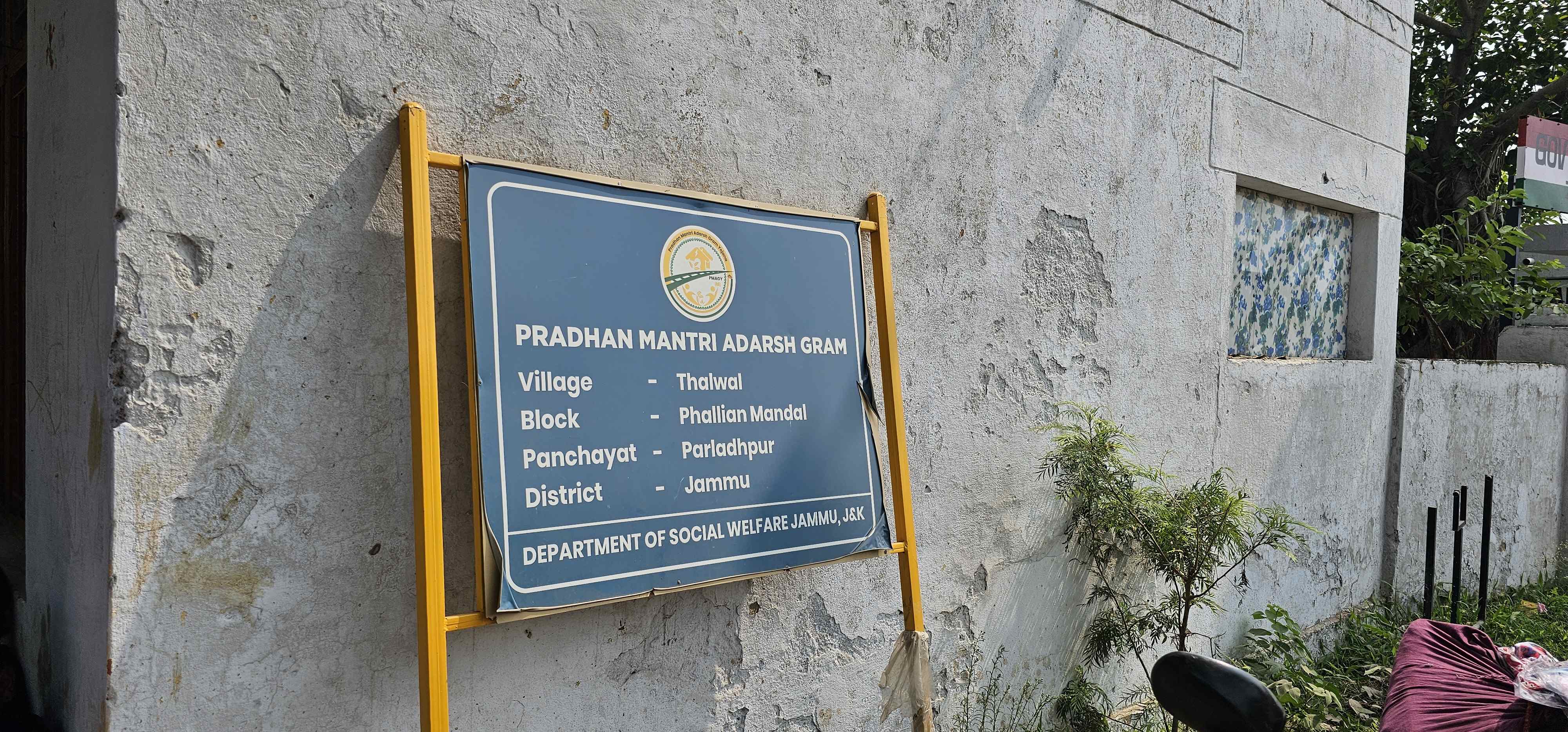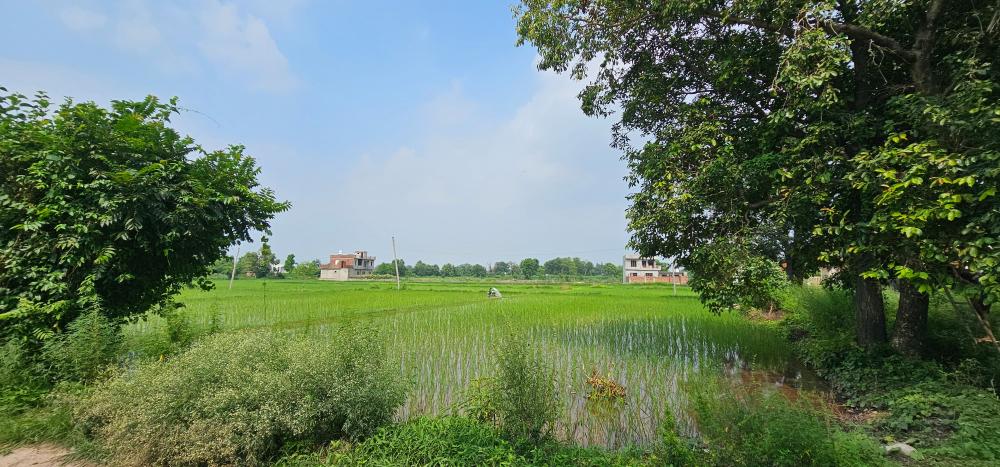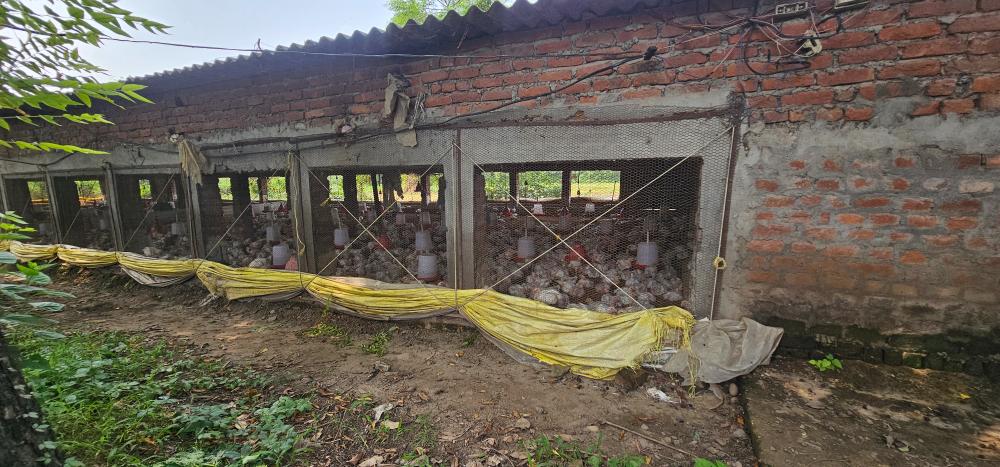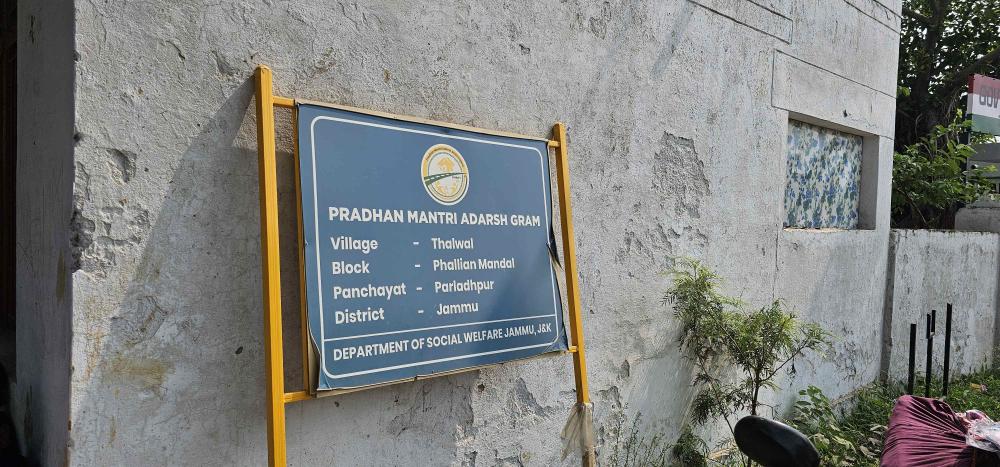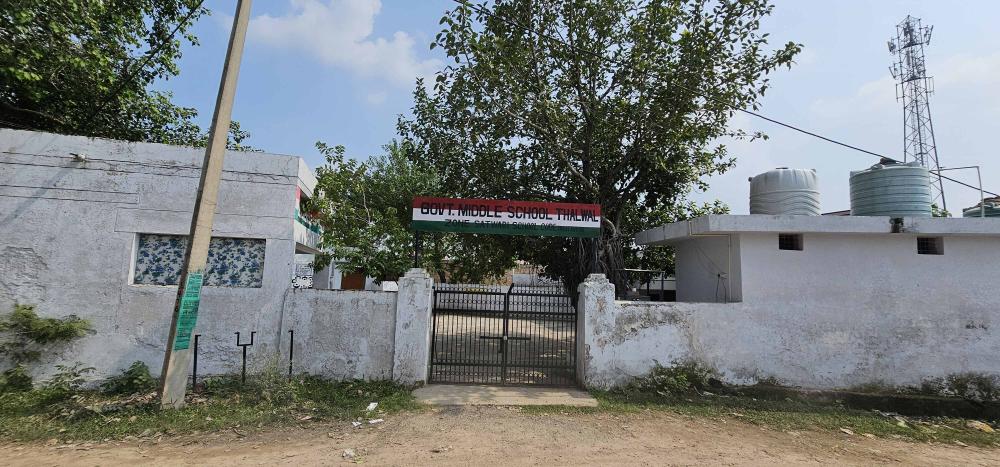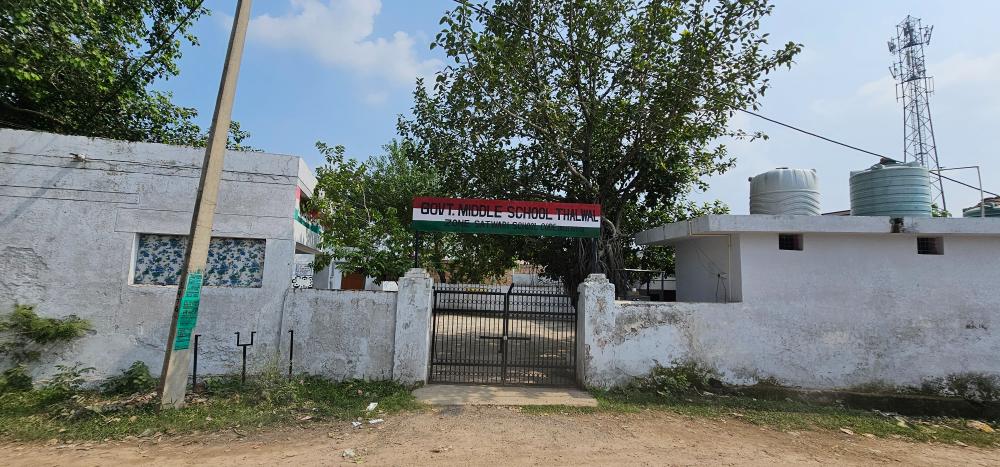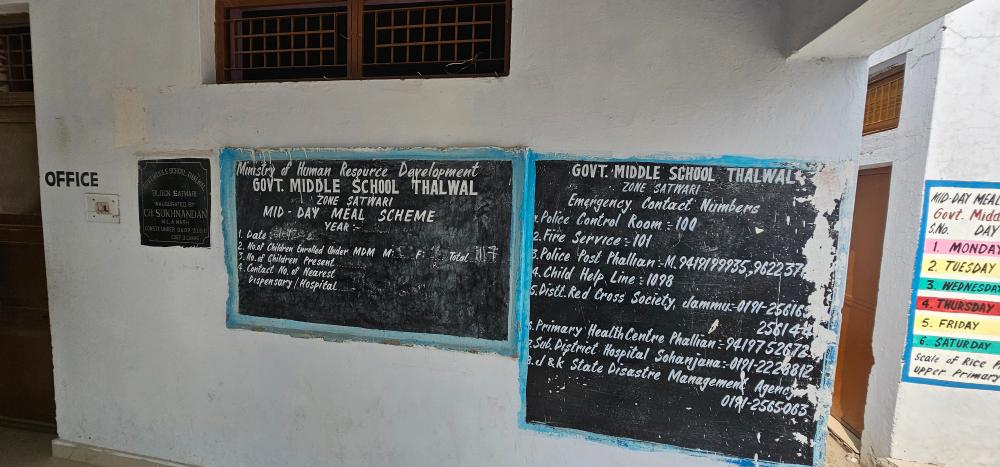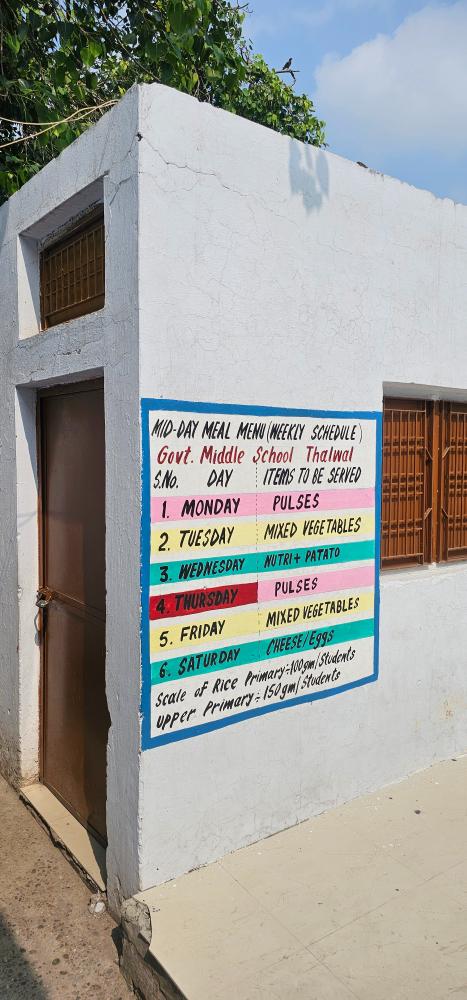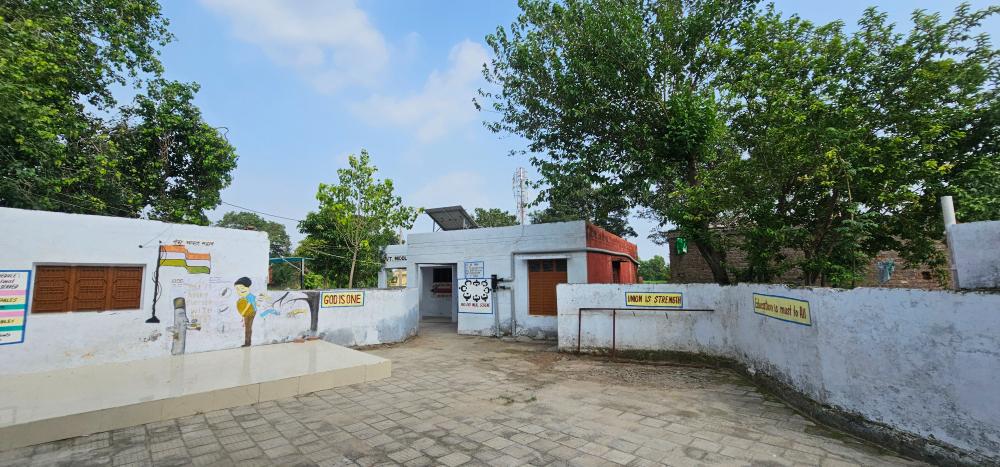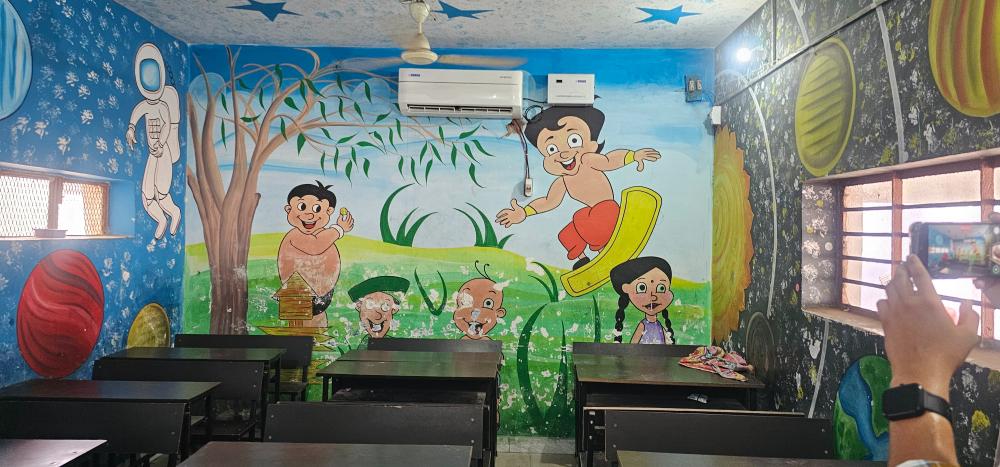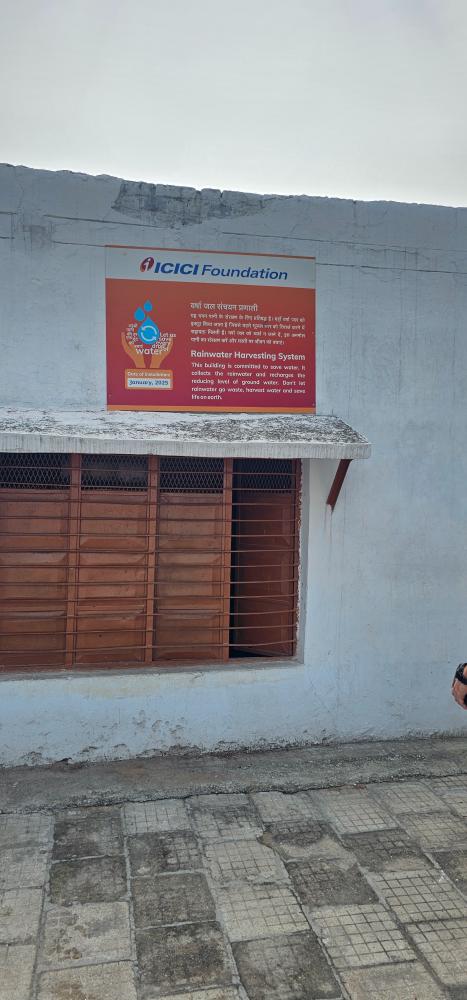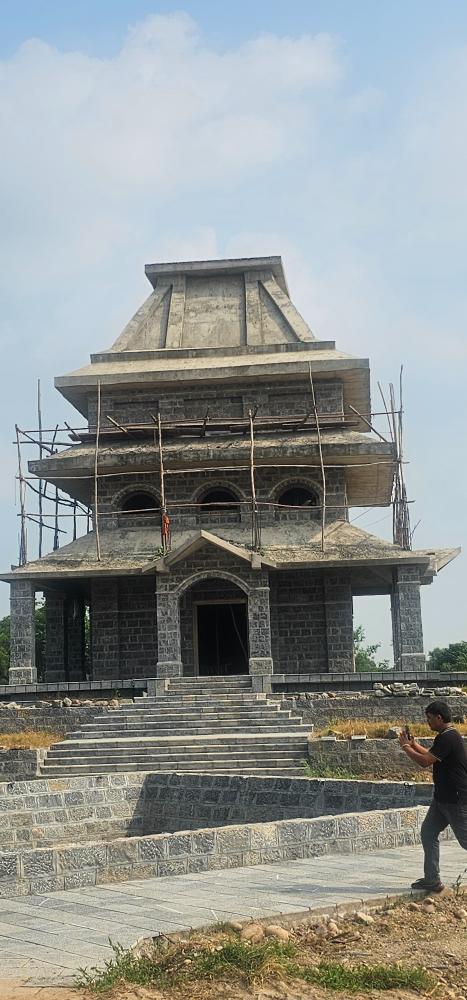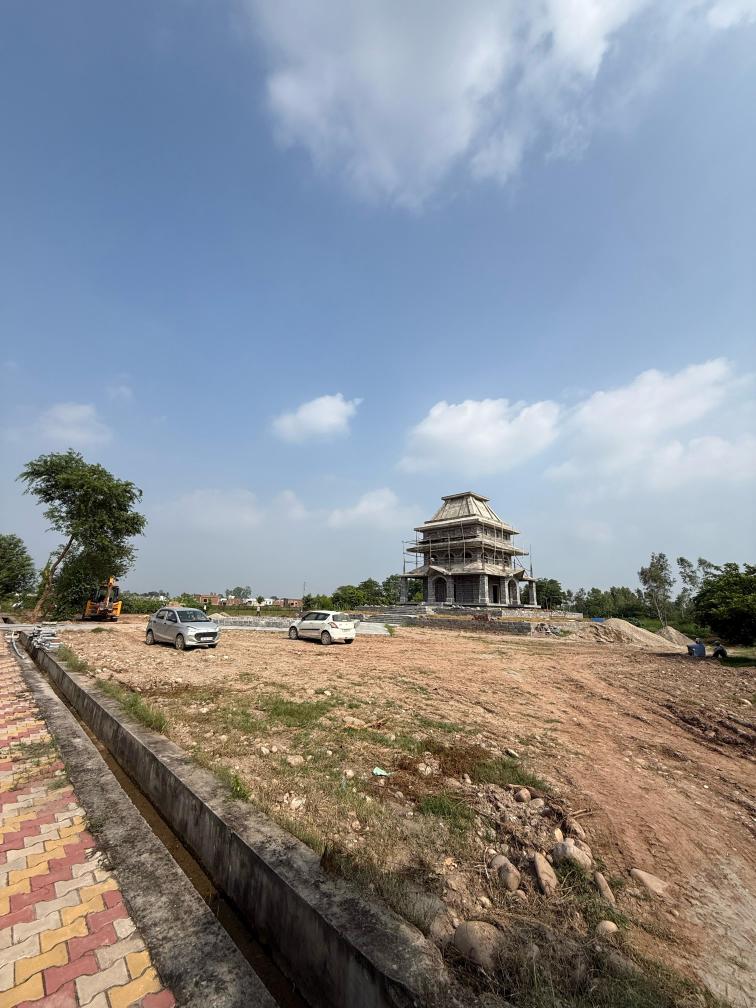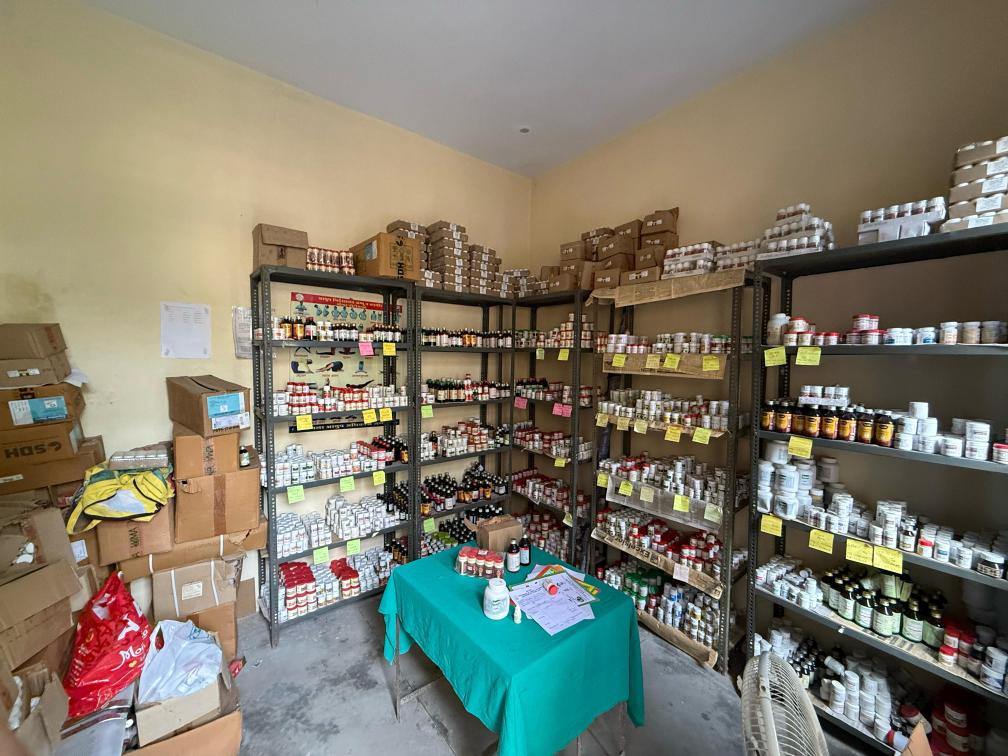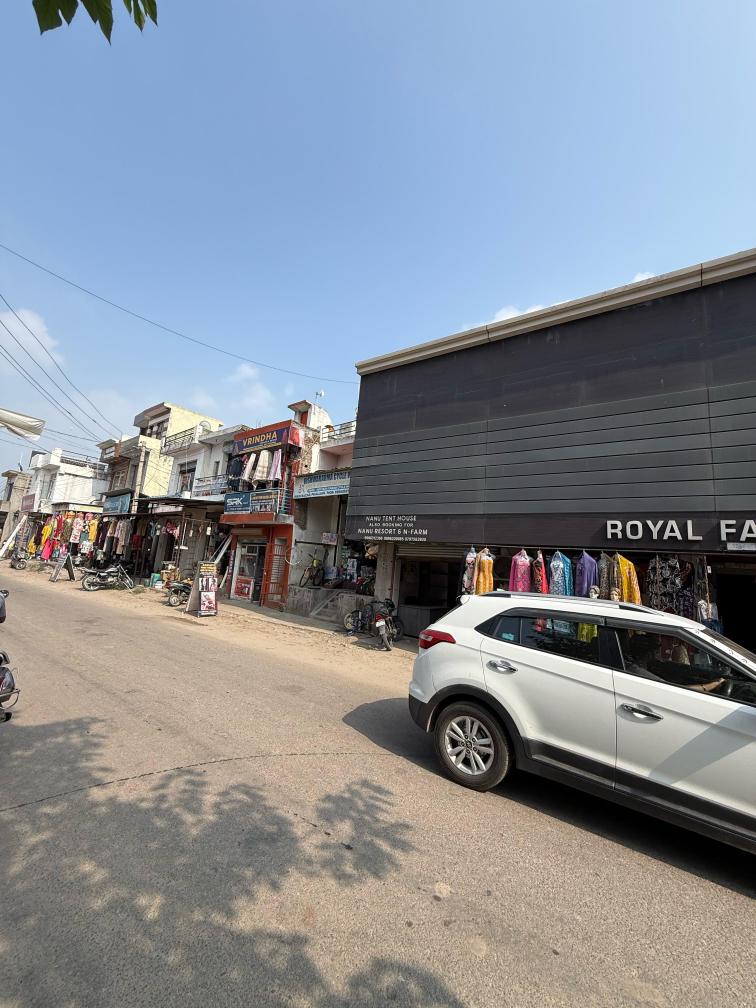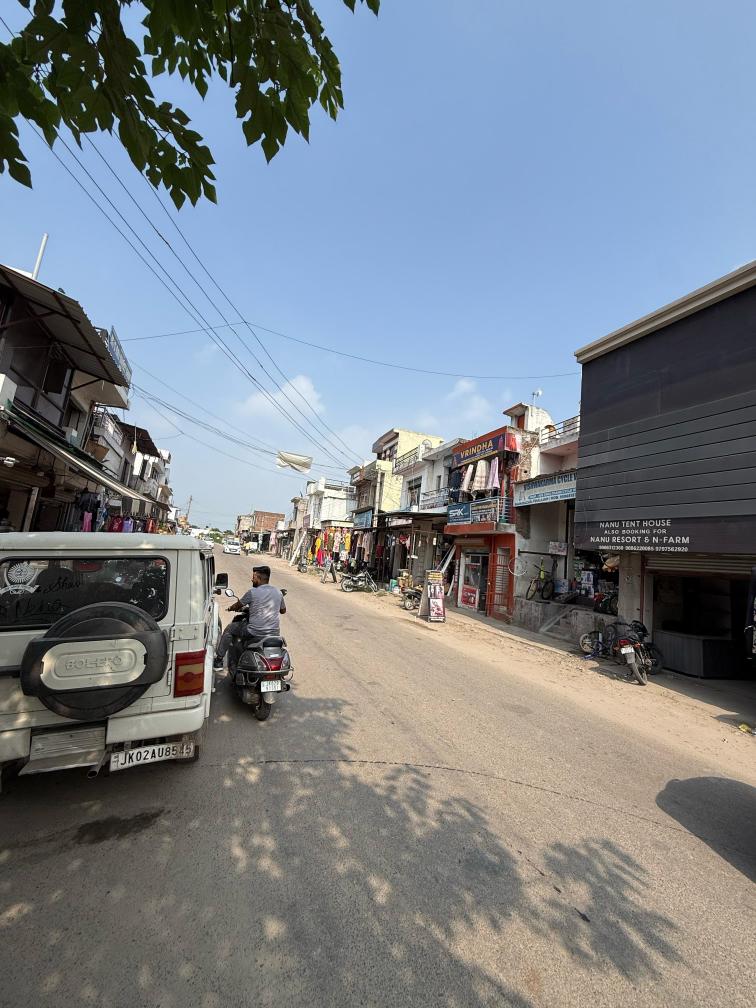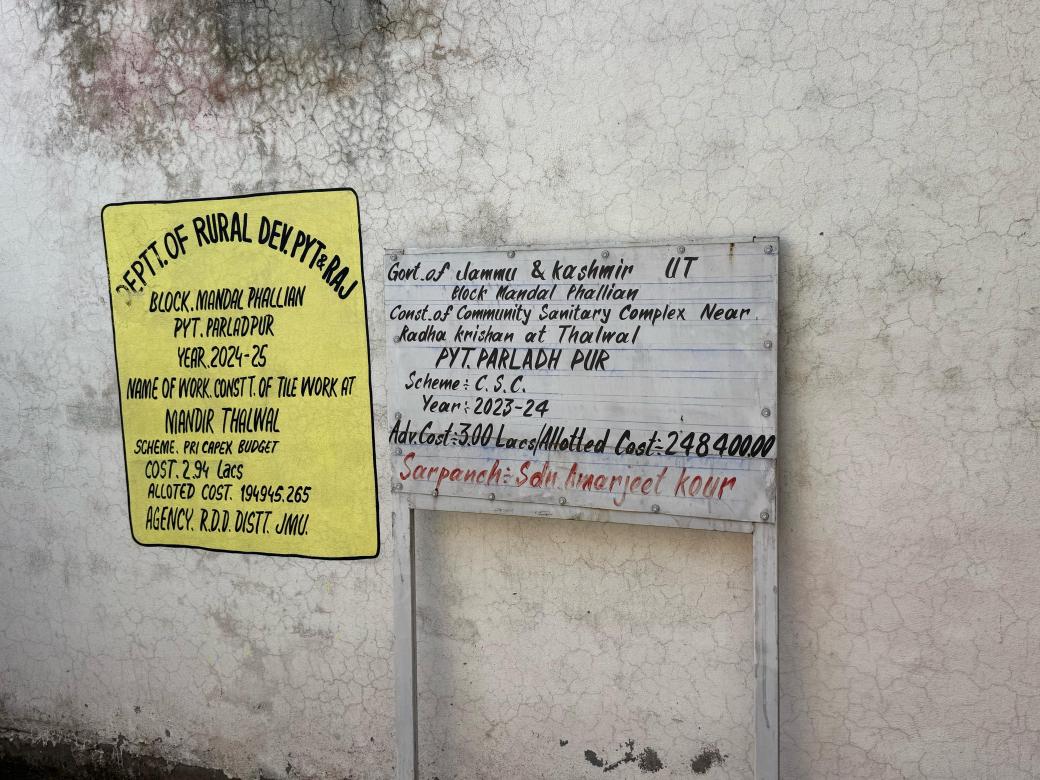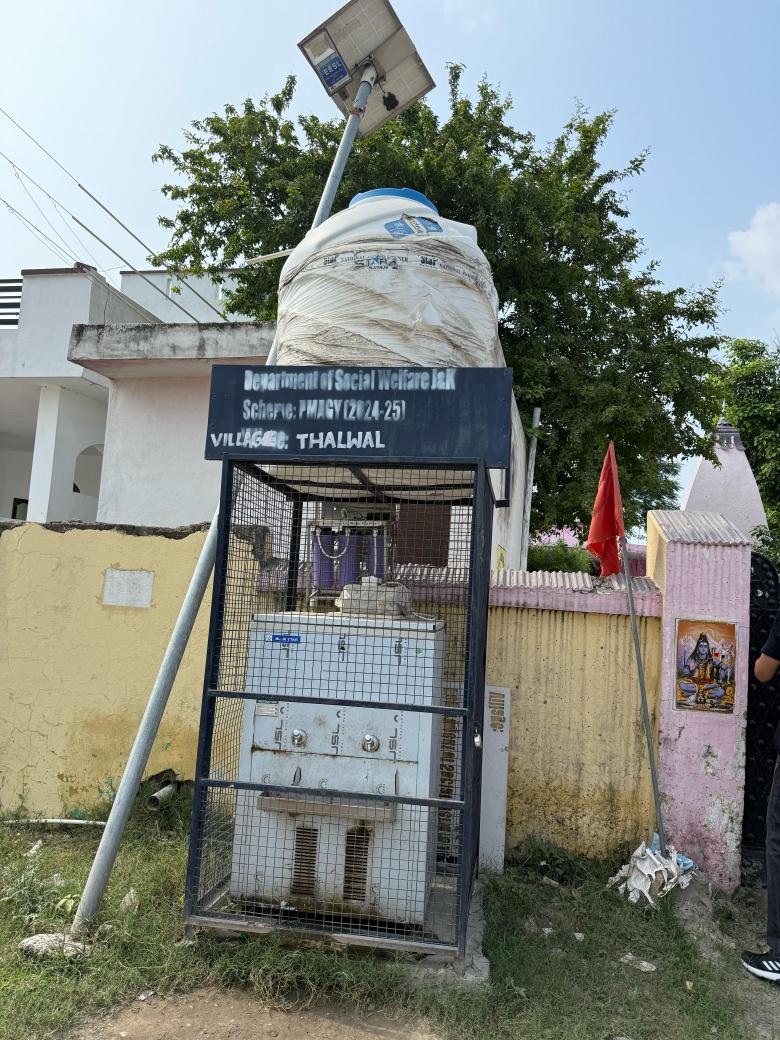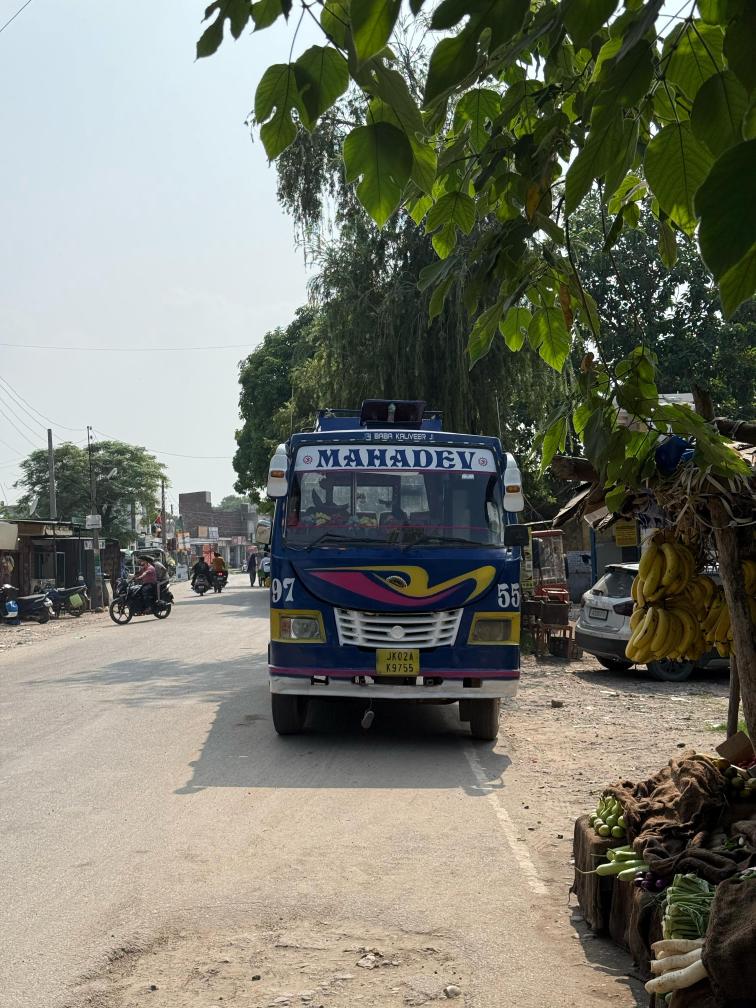Description
Introduction to Thalwal
Thalwal is a vibrant rural settlement located in the Mandal Tahsil of Jammu District, within the Union Territory of Jammu and Kashmir, India. Governed by the Parlad Pura Gram Panchayat, this village is part of the Marh Community Development Block, which is known for its fertile plains and agricultural dominance. The village lies just 15 kilometers away from Jammu city, offering its residents the advantage of accessing urban markets, healthcare, and educational institutions while continuing to preserve their rural way of life. This geographical positioning has helped Thalwal evolve into a semi-rural hub that balances tradition with emerging modern influences. The charm of the village lies in its blend of simplicity, community-centered living, and its proximity to an important urban center.
Geographic Location and Connectivity
Strategically placed in the Jammu plains, Thalwal enjoys favorable accessibility to the city of Jammu as well as to neighboring villages. Private bus services are the lifeline of transportation, connecting residents to nearby towns and marketplaces. Although the nearest railway station is situated more than 10 kilometers away, Jammu city compensates for this with its railway junction, highway networks, and airport, making national and regional travel accessible to villagers. Within Thalwal, kutcha and pakka roads weave through the settlement, connecting households, fields, and institutions. The official postal identity of Thalwal, registered under PIN code 180003, further integrates the village into the wider administrative and communication grid of India, ensuring smooth correspondence, postal banking, and delivery of government schemes.
Climate and Environmental Insights
The climate of Thalwal is characterized by the subtropical features of the Jammu region. Summers are warm and dry, winters are moderately cold, and the monsoon brings life to the fields with its nourishing rains. Historical weather and climate data dating back more than a century reveal fascinating insights into the region’s changing climate patterns, showing variations in precipitation, average temperatures, and seasonal shifts. The village heavily depends on the canal irrigation system to stabilize agricultural production during inconsistent rainfall years. Environmentally, the village is surrounded by green stretches of cultivated fields, small patches of waste land, and trees that provide both shade and ecological balance. Farmers are highly sensitive to weather forecasts, as even minor changes in rainfall or canal water availability influence the productivity of wheat, rice, and maize — the backbone of the agrarian economy in Thalwal.
Population and Social Structure
According to available records from 2009, Thalwal has a population of 651 residents distributed among 138 households. The gender balance is nearly even, with 340 males (52.23%) and 311 females (47.77%), reflecting a stable demographic structure. What makes Thalwal socially unique is the significant representation of Scheduled Castes (56.53% of the population) and Scheduled Tribes (20.43% of the population), which add to the cultural diversity of the settlement. Each group carries forward its distinct traditions, festivals, and social practices, enriching the village’s cultural fabric. With a population density of over 460 persons per square kilometer, Thalwal is compact, ensuring strong community bonds where families know and support one another. The sense of belonging is high, with social gatherings, marriages, and festivals serving as occasions of unity. The community spirit is further reinforced by traditional practices like collective farming assistance during sowing and harvesting seasons.
Land and Agricultural Resources
Thalwal spreads over 141.2 hectares of land, of which 97.1 hectares are under agriculture, making farming the primary occupation of the residents. Impressively, the entire cultivated area is irrigated by canal water, which makes the fields fertile and productive across all seasons. Crops such as rice, wheat, and maize dominate the agricultural calendar, while seasonal vegetables supplement the daily diet of villagers. The remaining land includes 41 hectares of non-agricultural use, largely occupied by houses, pathways, and community spaces, while 3.1 hectares remain culturable wasteland, potentially available for future expansion or ecological projects. Agriculture is not only an economic activity here but also a cultural practice, with festivals and rituals tied directly to sowing, harvesting, and rainfall. Farmers often work together in groups, and agricultural fairs or seed exchanges form an important aspect of rural interaction.
Educational Infrastructure
Education in Thalwal has made gradual progress, with basic schooling facilities available within the village itself. It hosts a private pre-primary school, a government primary school, and a government middle school, ensuring that children receive foundational education without having to travel far. However, for higher education, students must travel to nearby Phallian (for secondary school) or to Jammu city, which is more than 10 kilometers away and provides a wide spectrum of senior secondary schools, degree colleges, and specialized institutions in engineering, medical sciences, and management. This dependence on outside institutions encourages early exposure of village youth to city life, broadening their aspirations and worldviews. Although the absence of higher education centers within Thalwal presents challenges, it has also motivated families to invest more in education, often pushing their children toward careers in teaching, government services, or professional studies. Literacy is seen as a pathway to empowerment, and the community values those who return with knowledge to uplift the village.
Healthcare and Medical Facilities
Thalwal relies on a combination of local and nearby health centers for medical services. Within a 5-kilometer radius, villagers can access a primary health centre, health sub-centre, dispensary, and a maternity and child welfare centre, which provide basic medical support. For advanced treatments, they travel to Jammu city, where allopathic hospitals, TB clinics, veterinary hospitals, and alternative medicine centers are available. This reliance on the city is common among rural settlements in Jammu, but Thalwal’s proximity ensures that emergencies can be managed quickly. Livestock care is also significant here, and the availability of veterinary hospitals helps maintain the health of cattle, goats, and poultry, which are crucial to the rural economy. Traditional remedies and local healers continue to play a supporting role in healthcare, reflecting the blend of modern medicine with indigenous practices.
Cultural Heritage and Traditions
The cultural landscape of Thalwal is deeply tied to the Dogra ethos of the Jammu region, while also reflecting the distinct traditions of Scheduled Castes and Tribes who form a significant part of the population. Major festivals such as Lohri, Baisakhi, Diwali, and Holi are celebrated with enthusiasm, bringing together people of all castes and communities. Rituals often involve collective prayers, folk singing, and feasts, where traditional dishes are prepared and shared among families. Ram Navami and Dussehra are observed with reverence, often involving cultural performances and folk dramas inspired by the Ramayana. Weddings are grand social events, marked by Dogri folk songs, traditional attire, and the joyous participation of the entire village. Customs of community support — where all villagers contribute to wedding preparations — are still alive, showcasing the strength of collective living.
Village Lifestyle and Community Values
Daily life in Thalwal revolves around agriculture, social gatherings, and family responsibilities. Men usually engage in farming, trade, or small-scale employment, while women contribute equally through agricultural labor, household management, and weaving traditional crafts. Evenings in the village often see groups of men gathering at chaupals (common spaces) to discuss village matters, politics, or simply share stories, while women bond over household tasks and festive preparations. Children spend their time between schooling and playing in open fields, carrying forward the carefree charm of rural childhood. Villagers strongly believe in hospitality, and visitors are often welcomed with warm smiles, traditional tea, and home-cooked food. Values such as respect for elders, communal harmony, and collective responsibility remain at the core of Thalwal’s identity.
Economic Activities and Emerging Livelihoods
While agriculture remains the cornerstone of Thalwal’s economy, there are signs of diversification. Some families are engaged in dairy farming, poultry, and small businesses that serve the local community. Younger generations are seeking opportunities in Jammu city, often working in government departments, private firms, or service industries. Remittances from those working in cities contribute to household income and are often invested in education or home improvement. Small entrepreneurial ventures, such as grocery shops, tailoring, and transport services, are gradually appearing, hinting at a shift toward economic diversification. With better infrastructure and skill development, Thalwal has the potential to nurture agro-based businesses, handicrafts, and service enterprises in the near future.
Festivals and Gastronomy
Food and festivals are closely intertwined in Thalwal. During Lohri, villagers prepare gajak (sesame and jaggery sweets) and gather around bonfires to sing traditional songs. Baisakhi, the harvest festival, is celebrated with communal feasts where makki di roti (maize bread) and sarson da saag (mustard greens) take center stage. Rajma-chawal (red kidney beans with rice), a Jammu specialty, is a household favorite during gatherings, while sweets like meethe chawal (sweet rice) and phirni are distributed during festivals and weddings. Food is more than nourishment here — it is a symbol of sharing, celebration, and identity. Villagers often exchange festive dishes with neighbors, ensuring that no one is left out of the joy.
Biodiversity and Natural Surroundings
Thalwal’s surroundings boast a rural biodiversity typical of the Jammu plains. Fields stretch across the horizon, dotted with seasonal crops and fruit-bearing trees such as mango, guava, and mulberry. The irrigation canals create micro-ecosystems that attract birds like parrots, peacocks, and kingfishers. Monkeys are also a common sight near orchards and fields. The landscape, while primarily agricultural, holds ecological importance as it sustains both human livelihoods and animal habitats. Villagers are deeply aware of their dependence on natural resources, which makes them value greenery, water, and soil fertility. Traditional practices such as planting trees during festivals or maintaining community groves reflect this awareness.
Future Prospects and Development
Thalwal stands at the cusp of transformation. Its fertile land, proximity to Jammu city, and strong community values provide a foundation for sustainable development. With greater investments in infrastructure, digital literacy, and healthcare, the village has the potential to progress toward becoming a modern rural hub. Skill development programs, women’s self-help groups, and small-scale industries could provide new opportunities for youth while reducing migration pressures. At the same time, preserving cultural traditions, folk music, and agricultural heritage will be key to maintaining the unique identity of Thalwal. The future of the village depends on striking the right balance between modernization and cultural preservation, ensuring that growth does not come at the cost of its rich rural character.
Photos
Videos
Location Map
Contact Information
| Address |
Thalwal, Mandal Bo, Jammu, Jammu & Kashmir, India - 180003 |
| Phone Number | |
| Website | https://villageinfo.in/jammu-&-kashmir/jammu/jammu/thalwal.html |

